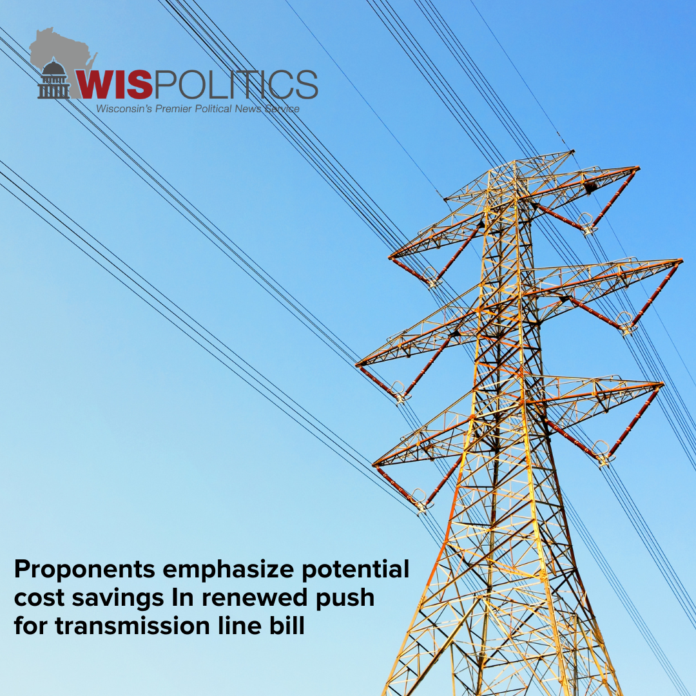Wisconsin utilities are making a renewed push on legislation to give them first shot at building new infrastructure, this time armed with a report suggesting ratepayers would save $1 billion over the next 40 years via the plan.
Senate Majority Leader Devin LeMahieu told WisPolitics last week he wants the proposal to clear the Legislature by this spring after it bogged down in his house this session amid opposition from conservatives. LeMahieu also said he’s willing to use Dem votes to get the bill through the Senate with the 18-15 majority Republicans will have come January after having 22 members this session. He argued failing to pass the bill could cost Wisconsin ratepayers in the long run.
“It would be irresponsible,” the Oostburg Republican said.
But GOP state Sen. Steve Nass, who opposed the bill last session, is unswayed by an industry-funded study and continues to believe limiting competition for coming transmission projects would hurt Wisconsin ratepayers in the long run.
Dubbed “right of first refusal” by supporters, the proposal would give utilities already doing business in Wisconsin the right of first refusal to construct, own and maintain a new transmission line that connects to one of their existing ones.
It’s also already been through an intense lobbying effort. WisPolitics previously reported it was the most lobbied bill over the first 18 months of the 2023-24 session, with groups pouring 5,071 hours into influencing lawmakers.
The debate has pitted those who argue it would bring continued stability to the state’s transmission system against those who believe it would stifle competition and lead to higher costs for ratepayers. It cleared the Assembly on a voice vote, but died in the Senate amid opposition from some of the chamber’s more conservative Republicans.
Senate Minority Leader Dianne Hesselbein, D-Middleton, told WisPolitics she wanted to see the bill return, believing it was one area where Dems and Republicans could work together in a bipartisan manner to get it through the chamber.
LeMahieu said that could be an option.
“It depends on wherever the caucus is, but there might need to be Dem votes to get it passed,” he said.
Both LeMahieu and Assembly Speaker Robin Vos, R-Rochester, last week in interviews with WisPolitics cited a new study commissioned by the American Transmission Co. to make the case for passing the legislation.
Vos said he wants the Senate to go first on the bill next session since the Assembly has already signed off on it once.
“I don’t know who can turn down a billion dollars in savings,” Vos said. “That’s my whole goal, right? To return more money to people’s pockets, help them deal with inflation.”
Wisconsin is part of the 14-state Midcontinent Independent System Operator, the regional electric grid that covers the upper Midwest.
MISO this month approved a $21.8 billion investment for 24 projects across the region with the expectation they will go into service from 2032-34. The heart of that is a 3,631-mile, 765 kV line. The group is expected to release a schedule for the projects next month, with the first requests for proposal to go out in February.
LeMahieu said that’s part of the reason for his sense of urgency in passing the bill. He wants ROFR in place to ensure more of the project costs for work in Wisconsin are spread throughout the region.
See the full story at WisPolitics.






